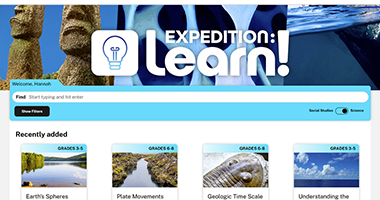It’s only been two and a half years, but Noni Harrison has already made an enormous impact as Head of Library at St Rita’s College in Queensland, Australia.
Britannica sat down with Noni to ask her about promoting reading and information literacy initiatives as a librarian, creating a data-informed learning space, and the importance of having a vision for your library.
Why did you become a librarian?
Librarians and Teacher Librarians in the last five or ten years have really worked hard to get outside the library, making themselves known and really being visible amongst the wider school community.
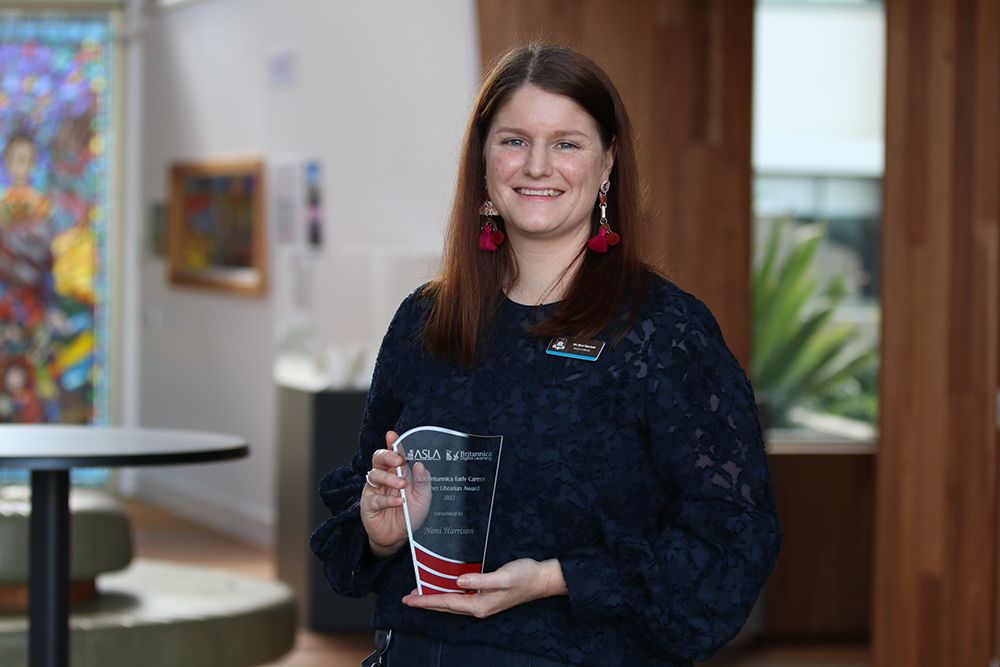
When I first started teaching, I taught senior Home Economics, and I worked really closely with the TL and library technician to develop pathfinders and curate resources for research tasks. That was really my first glimpse into how a library can support, not just reading for pleasure, but the academic endeavours of a school.
When I went through school myself, librarians were certainly there, but weren’t as visible as they are now. So that was an eye-opening moment for me; this type of role where you get to work with staff from all over the school, and to help students in a completely different way than you would in a classroom.
Later in my teaching career, a mentor of mine, who had just completed her Masters in Teacher Librarianship, gave me an opportunity to take up some contract work in her library, because she thought it aligned with my passions. I remember getting there and thinking, wow, this is where I was meant to be the whole time. Again, it was really astonishing to see the impact that a library can have on the school, beyond what you traditionally think about a library.
You joined St. Rita’s two and a half years ago as the Head of Library. What would you say has been the biggest standout about this role?
Since coming to St. Rita’s, I’ve been really heartened by how willing people have been to jump on board with different library programs.
Our leadership team really values the library and what the library brings to the College. I was also really lucky that the team prior to me had already built a very strong culture of reading, so I was able to come in and offer something new in terms of support of the curriculum. And uptake has been phenomenal.
A common sentiment among many librarians is that their expertise is being underutilised in schools in many areas, including curriculum resourcing. Do you have any advice?
Yes, sometimes it can be hard to legitimise yourself. However, every success story I’ve heard always started small. Start with one subject or one year level, get a couple of teachers on board and demonstrate what you can do. As one of my good TL friends said to me: “gather your foot soldiers Noni!”
At the end of the day, the evidence is there to show that if you have a qualified teacher librarian or library team in your school, student achievement improves quite significantly.
It’s important to take a service-based approach, we need to value-add, we are not there to be an additional burden. When you’re developing something for teachers, it’s tricky finding the right balance of anticipating their needs while not over asking questions. You have to have a very clear idea of the curriculum across the year levels, so you need to be reading those curriculum documents!
You’ve led and been part of some great library initiatives. Can you tell us more about these and their impact?
- Implementing Academic reading and note-taking strategies to increase student comprehension
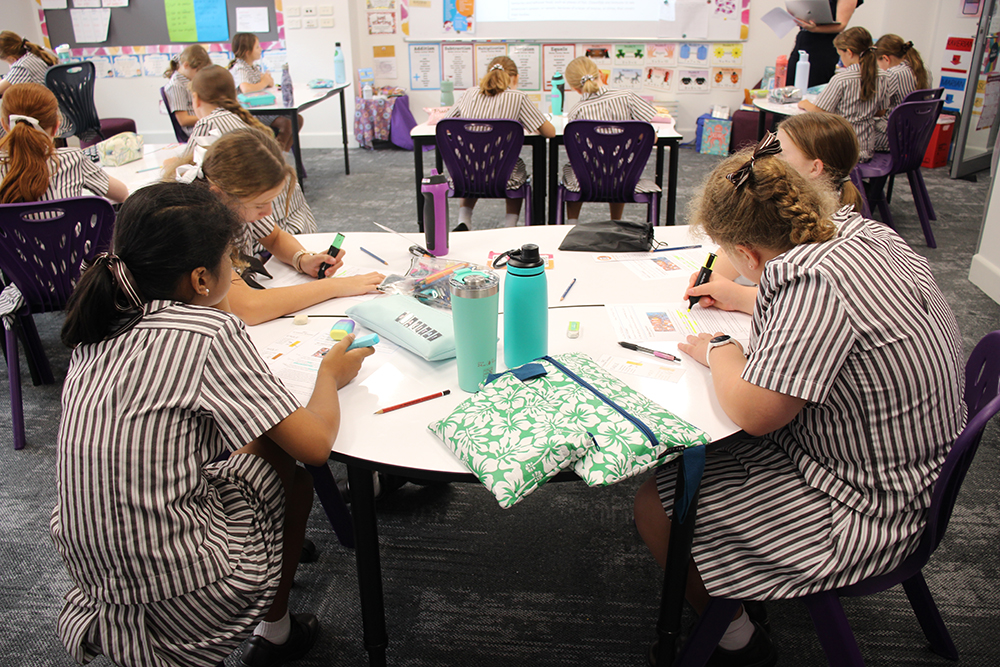
When I came to St. Rita’s, my interest in reading and study strategies led me to become part of a research team with members of the College leadership team and the Head of the Student Study Centre. We focused on a transition program for Year 7 students, because there was a disparate range of skills among these children.
Together with the Queensland Catholic Education Commission and the Science of Learning Research Centre at the University of Queensland, we conducted an action research project to determine which reading and note-taking strategies would be the most effective, based on a pre-assessment of our students’ skill deficits.
The evidence from our research showed that the Fly-Hunt academic reading strategy developed by Sharon Crone, and the Cornell note-taking strategy to be greatly effective, not only in terms of building skills and comprehension, but also in terms of self-efficacy.
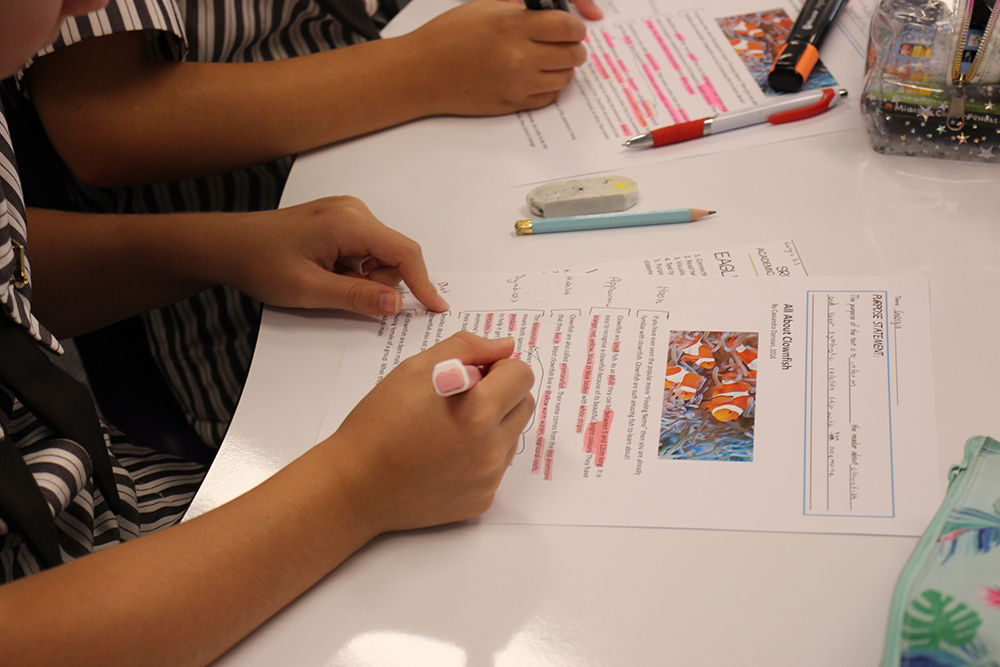
Reducing cognitive load was a big part of why the Fly-Hunt reading strategy worked so well. Students are less likely to panic when faced with a challenging text, instead they are taught to first “fly over” the text to get a sense of what the article is about, which in turn helped them predict what might be coming up. We also found that the strategy helped to reduce some anxiety when students were approaching these tasks.
Even the Year 5 students really enjoy these sessions – they sit up straight like the big kids doing their academic readings!
We really focus on contextualising these skills for our students. The library and literacy team teach the strategy as part of a subject lesson, for example Social Science, using a reading that is relevant to the topic being studied at the time. We work with the class teachers to select a reading, so that the students can apply their reading skills in a meaningful way.
With the note-taking strategy, we generally attach that to research assignments. Again, if you teach these strategies in a context that makes sense and is meaningful, the motivation to learn will be higher.
- Rolling Out Information fluency and digital research initiatives
We are a library that doesn’t have timetabled library lessons, so we are really focused on point-in-time, contextual lessons. We want to make sure that when teacher librarians go into classes that it’s for a specific purpose, so our library team developed our own digital research guides using LibGuides. Many schools do this and have great success.
These research guides enable us to curate quality information as a starting point for research, for all students. This is where we embed our databases like Britannica. We also complete a research fluency lesson for each of those research guides. The teacher librarians will go into classes, unpack the guide with students and provide instruction and practice of key research strategies.
As a next step we’re working on developing a scope and sequence for Year 5 through to 12, just to map what skills we are hitting in the information fluency framework.
These guides have been very successful in encouraging students to adopt good research habits, especially in terms of using reliable sources when searching online. Based on usage statistics for these resources, we see a return rate of five or six times per student.
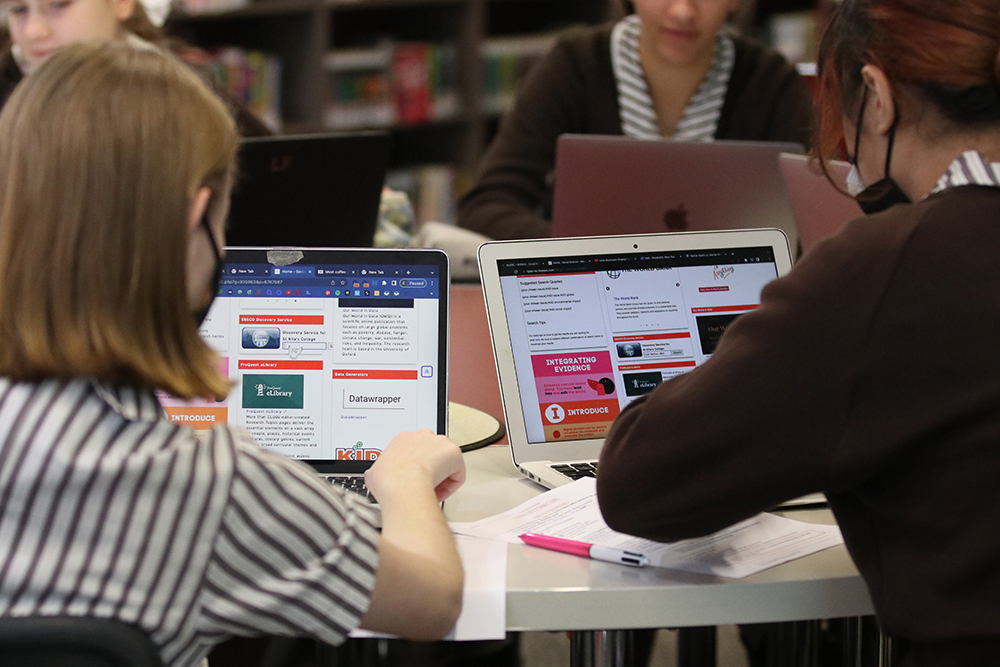
Let’s talk about the non-fiction collection at your library. With the growing trend in digital information, do you have advice for libraries looking to start or grow their own digital collections?
At St Rita’s, we’re quite lucky that we do have a healthy portion of our budget allocated for digital resources, including a range of different databases.
But my main advice for those schools that do perhaps have a limited budget is to look for a database that’s going to give them the most bang for their buck. It’s an old cliché, but in terms of selection criteria, you do want to look for a database that is going to cover a range of year levels and subject areas; something that is accessible and has content not freely found online.
My main advice for schools [with] a limited budget is to look for a database that’s going to cover a range of year levels and subject areas.
Another thing to keep in mind is whether the resource addresses additional needs. With Britannica School for example, the differentiation feature alone is a big tick for us. Due to NCCD (Nationally Consistent Collection of Data) requirements, the level of data that schools need to collect on differentiation is growing enormously. Having access to databases like Britannica, where you can navigate between reading levels with the click of a button, is instantly useful, as it provides very tangible evidence of differentiation.
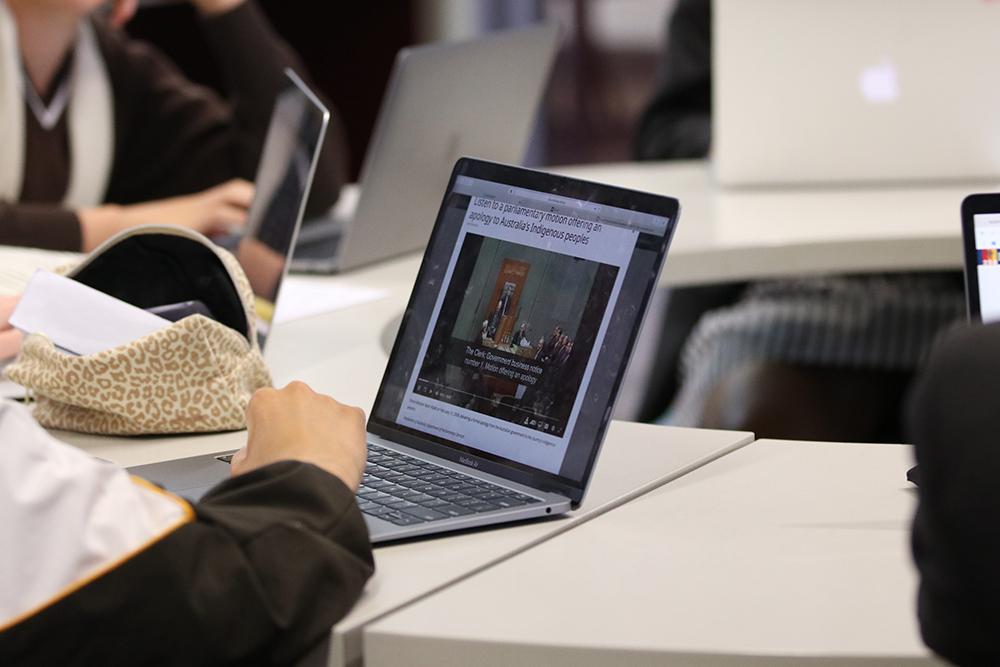
You’ve managed to achieve so much with your career in a relatively short period of time. What advice do you have for librarians who are just starting out?
Having a very clear vision for your library is, I think, where you need to start: What do you want your library to be? What does it need to be?
Something that I think is really important to remember: not everyone is there yet. You might have all of these incredible ideas and you just want to jump in and go for it straight away, but just be aware that you might need to let others catch up first, so start with something small and impactful.
Having a very clear vision for your library is, I think, where you need to start: What do you want your library to be? What does it need to be? What do you want to contribute beyond locating resources and books? Your vision is going to be different depending on the exact situation of your library or school.
Once you have a clear vision, make sure you start with a program that is manageable but also has impact and visibility. That’s really how you build your case and eventually advocate for bigger programs and more initiatives.
It is hard work when you have a small team or you’re just a team of one, but it is possible. Remember, you don’t have to have the latest and greatest to make a real impact! You, the teacher librarian, are the most valuable resource.
Noni Harrison is the winner of the inaugural ASLA/Britannica Early Career Teacher Librarian Award 2022.
This inaugural national award recognises and honours an Australian Teacher Librarian in their first five years of teaching, who has made an outstanding contribution to their school community and potentially beyond.
Noni graduated from Charles Sturt University in 2021 with the highest GPA. In her role, Noni has worked towards creating an evidence-based and data-informed library space. She has worked with her school leaders to inquire into the effectiveness of an academic reading and note taking strategy in increasing student comprehension. She has helped develop and expand the library services and collection to meet the needs of younger students when the school expanded.
Noni has been involved with her school’s information fluency initiatives and has also created and launched a literature-based program to promote reading through workshops and events. It was clear through Noni’s application and testimonials from her principal and deputy principal that her school values the work and contributions she can make to the school community. The judging panel were impressed with what Noni had achieved in such a short period of time and how the $1,000 Professional Learning Grant generously donated by Britannica Education and access to ASLA Webinars will support her in continuing her great work as a Teacher Librarian.
More Educator Resources
Sign up with your email for more free resources from Britannica.
